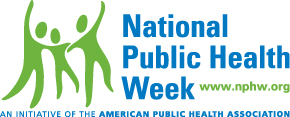 You might not think of education as a matter of health, but organizers of National Public Health Week do! They cited helping all Americans achieve at least high school graduation as one of their top nine priorities. They explain that “education is the leading indicator of good health, giving people access to better jobs, incomes and neighborhoods.”
You might not think of education as a matter of health, but organizers of National Public Health Week do! They cited helping all Americans achieve at least high school graduation as one of their top nine priorities. They explain that “education is the leading indicator of good health, giving people access to better jobs, incomes and neighborhoods.”
How does a high school education impact health?
The American Public Health Association, sponsors of the week (April 3-9, 2017), detail the health benefits of high school graduation:
- High school graduates tend to lead longer and healthier lives than their peers who drop out.
- Graduates generally earn higher incomes, and can afford better health care and housing in safer neighborhoods.
- They also learn more about healthy lifestyle practices at school.
Barriers to finishing high school
Although the health benefits of finishing high school may be clear, many students struggle with issues that make it difficult to do so:
- While high school graduation rates reached a record high of 82% in 2013-2014, there were still approximately 750,000 students who dropped out in 2012.
- Some common reasons students drop out include: bullying, absenteeism, undiagnosed or unmanaged medical conditions or mental health issues, and chronic stress related to social and environmental circumstances.
- Students may also leave school to provide care for a relative or child, or to start earning a full time income.
CareerOneStop’s website for young adults, GetMyFuture, offers additional considerations and support for students who face these challenges.
Better health and more. The benefits are clear:
- Earnings. Graduates typically earn 40% more than someone without a high-school degree.
- Employability. The chances of being employed rise by 33% when you finish high school.
- Advancement. A high school degree is required to go to college, and for most good jobs.
- Satisfaction. Graduates can take pride in their accomplishment and future direction.
- Being a role model. Graduation is also meaningful to friends, family, and community.
What can students do?
- Make sure you know exactly what you still need to meet graduation requirements in your area. Match your transcript to requirements.
- Work with your school counselor to get registered for the needed classes, and ask about education and career options after you complete your degree.
- If your school environment is the source of the problem, request a transfer to a high school that’s a better fit for you.
- Find out if there are alternative or online high school options that allow you to work at your own pace, or that help students transition to community college.
- As much as possible, focus on completing school rather than working at a job.
Check out GetMyFuture for more tips on using high school as a launching pad to the future.
